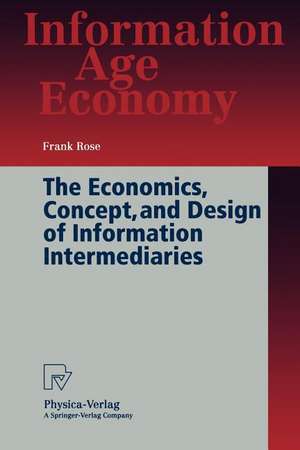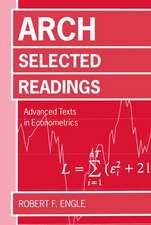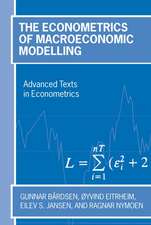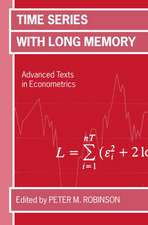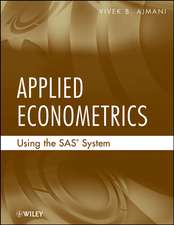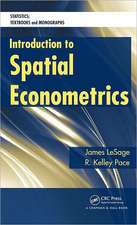The Economics, Concept, and Design of Information Intermediaries: A Theoretic Approach: Information Age Economy
Autor Frank Roseen Limba Engleză Paperback – 18 noi 1998
Preț: 639.73 lei
Preț vechi: 752.63 lei
-15% Nou
Puncte Express: 960
Preț estimativ în valută:
122.41€ • 127.81$ • 101.31£
122.41€ • 127.81$ • 101.31£
Carte tipărită la comandă
Livrare economică 05-19 aprilie
Preluare comenzi: 021 569.72.76
Specificații
ISBN-13: 9783790811681
ISBN-10: 3790811688
Pagini: 284
Ilustrații: XVI, 266 p.
Dimensiuni: 155 x 235 x 15 mm
Greutate: 0.4 kg
Ediția:Softcover reprint of the original 1st ed. 1999
Editura: Physica-Verlag HD
Colecția Physica
Seria Information Age Economy
Locul publicării:Heidelberg, Germany
ISBN-10: 3790811688
Pagini: 284
Ilustrații: XVI, 266 p.
Dimensiuni: 155 x 235 x 15 mm
Greutate: 0.4 kg
Ediția:Softcover reprint of the original 1st ed. 1999
Editura: Physica-Verlag HD
Colecția Physica
Seria Information Age Economy
Locul publicării:Heidelberg, Germany
Public țintă
ResearchCuprins
1 Introduction.- 1.1 Information overload.- 1.2 The aim and procedure of the analysis.- 1.3 The organization of this thesis.- 2 Information.- 2.1 Basic aspects of information.- 2.2 Sources of information.- 2.3 The credibility of information and trust in the information source.- 2.4 Information and market efficiency.- 2.5 Information as an economic commodity.- 3 Intermediation.- 3.1 Basic concepts and functions of intermediaries.- 3.2 Justification of intermediaries.- 3.3 Intermediary contracts and sources of income.- 3.4 Effects of intermediation on markets.- 3.5 Market microstructure.- 4 An economic model of information intermediaries.- 4.1 Introduction.- 4.2 The economic theory of search.- 4.3 Model of an information intermediary.- 4.4 The influence of environmental conditions on the intermediary’s strategy.- 4.5 Competition between information intermediaries.- 4.6 Welfare effects through the information intermediary.- 4.7 Extensions to the basic intermediary model.- 4.8 Summary.- 5 Concepts and design of information intermediaries.- 5.1 Information intermediaries.- 5.2 Network-based intermediaries.- 5.3 Network-based information intermediaries.- 5.4 Summary: economic aspects of network-based information intermediaries.- 6 Conclusion.- 6.1 Summary.- 6.2 Outlook: the future of network-based intermediaries?.- 7 References.- 8 Appendix.- 8.1 Appendix A: development of the number of Internet hosts.- 8.2 Appendix B: simplification of (eq. 9) using integration by parts.- 8.3 Appendix C: transformation of (eq. 12) into (eq. 13).- 8.4 Appendix D: proof of the indifference property.- 8.5 Appendix E: number of solutions of the system of equations in the broker model.- 8.6 Appendix F: partial derivatives of intermediary’s profit.- 8.7 Appendix G: list of examples and URLs.-List of figures.- List of tables.- List of used symbols.- List of abbreviations.
Textul de pe ultima copertă
The thesis analyses the economics, concept, and design of information intermediaries. Information intermediaries are independent, trustworthy information processing third parties who mediate information between information sources and information seekers in order to overcome problems of information overload and the uncertainty about the quality of information. The analysis develops an economic model based on the microeconomic theory of search and applies it to information intermediaries who provide services like the search for information or the mediation of information. Examples of these information intermediaries can be found in multiple forms on the Internet, e.g., search engines, thematic oriented subject directories, and electronic product catalogues. The model identifies the basic influencing factors of the intermediary's environment, investigates the impact of these environmental conditions on the information intermediary, and derives the optimal strategy of the information intermediary under different environmental circumstances.
The work provides deep insight in the economic principles of information intermediaries and outlines the application of current information technologies for their practical realization.
The work provides deep insight in the economic principles of information intermediaries and outlines the application of current information technologies for their practical realization.
